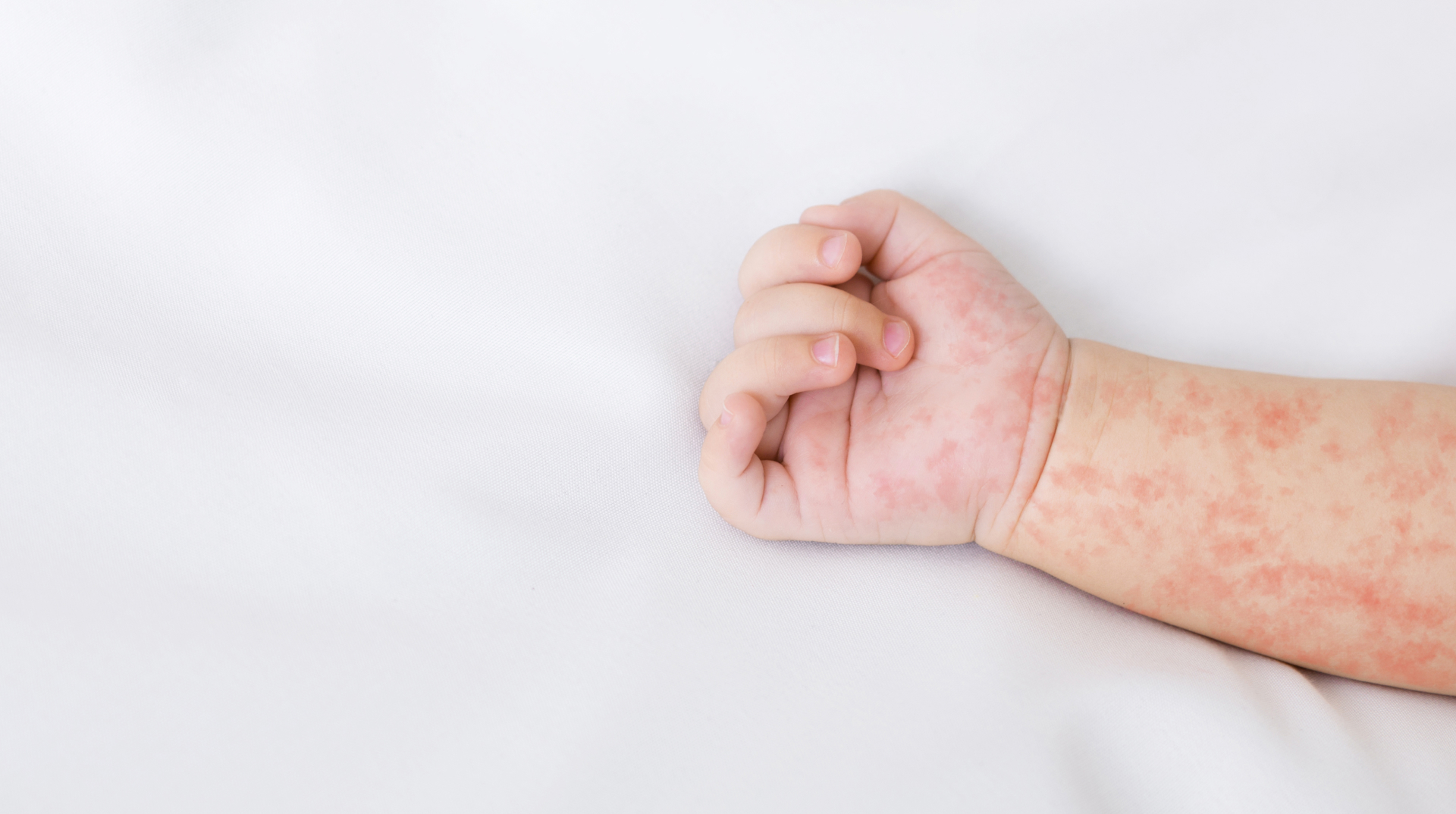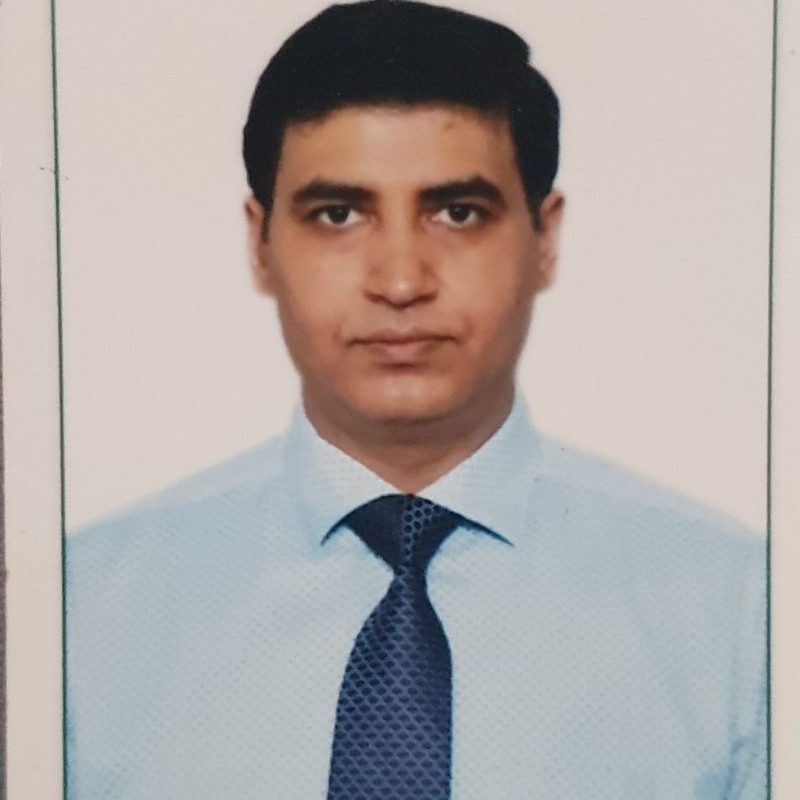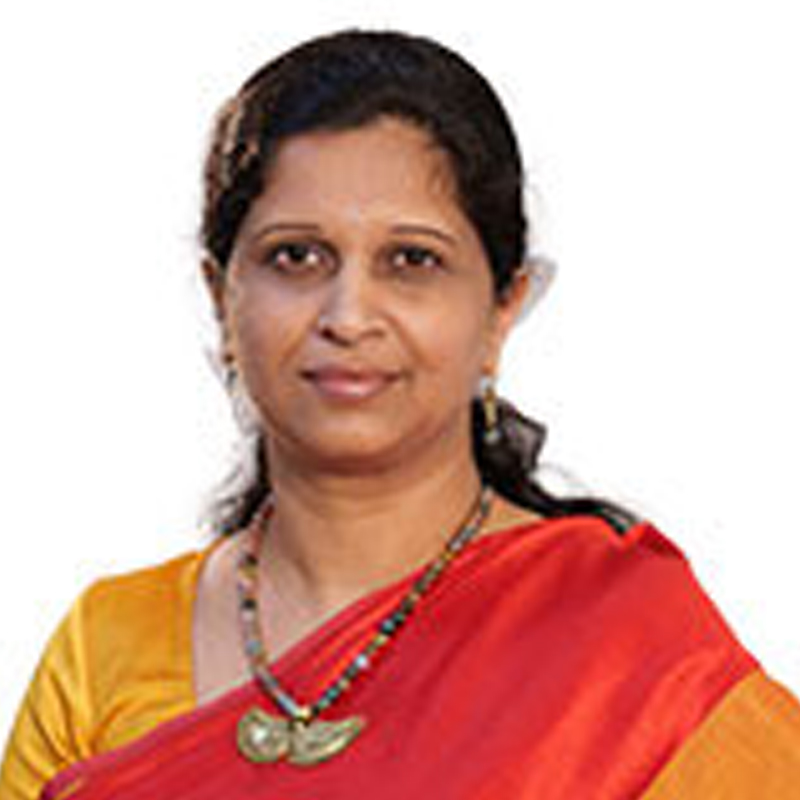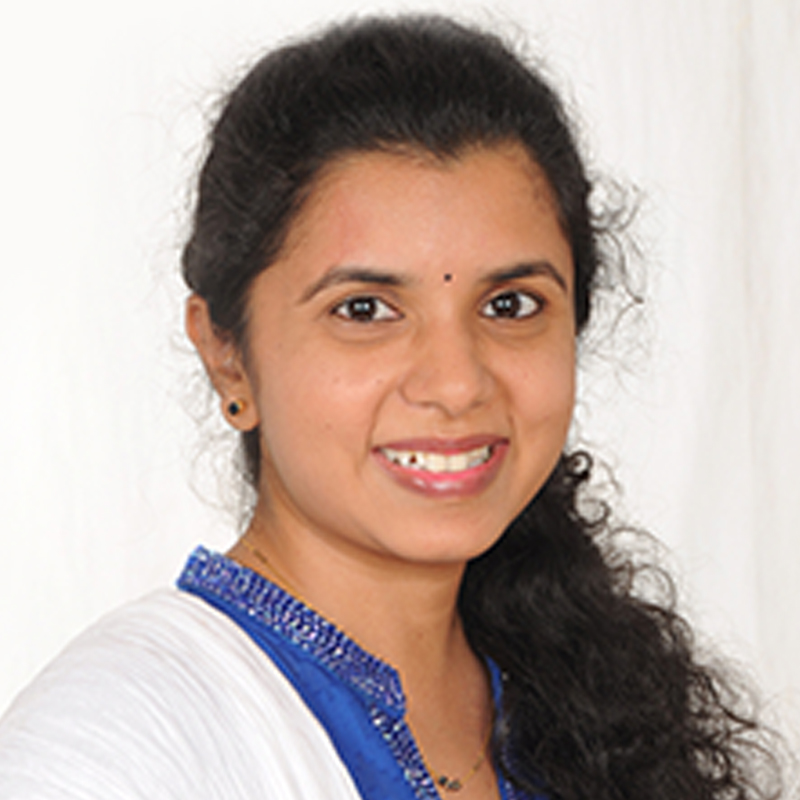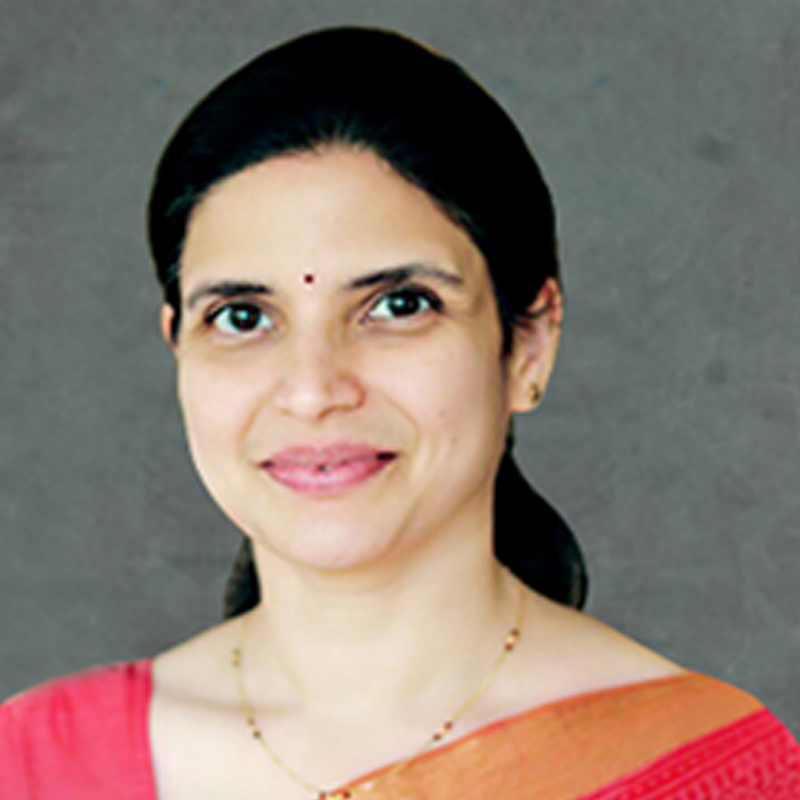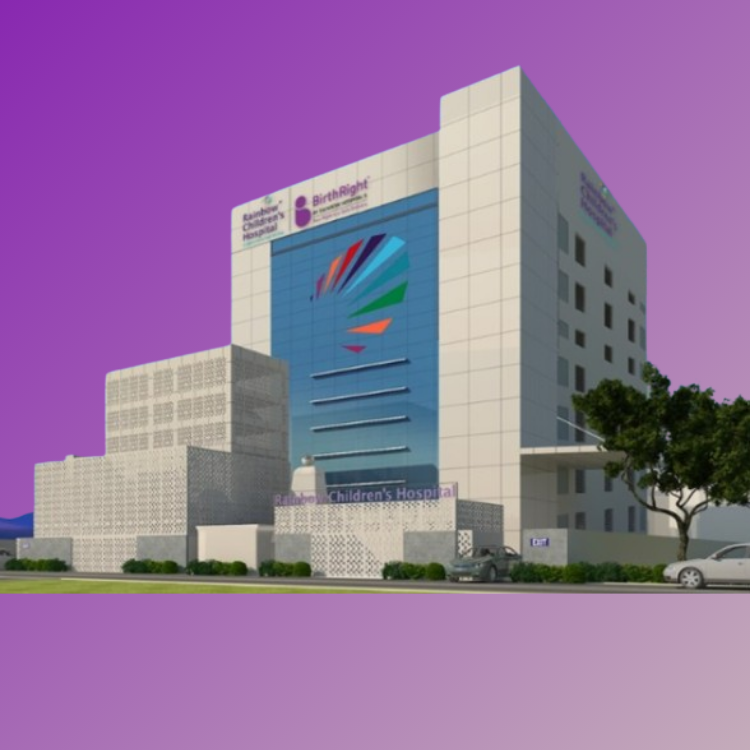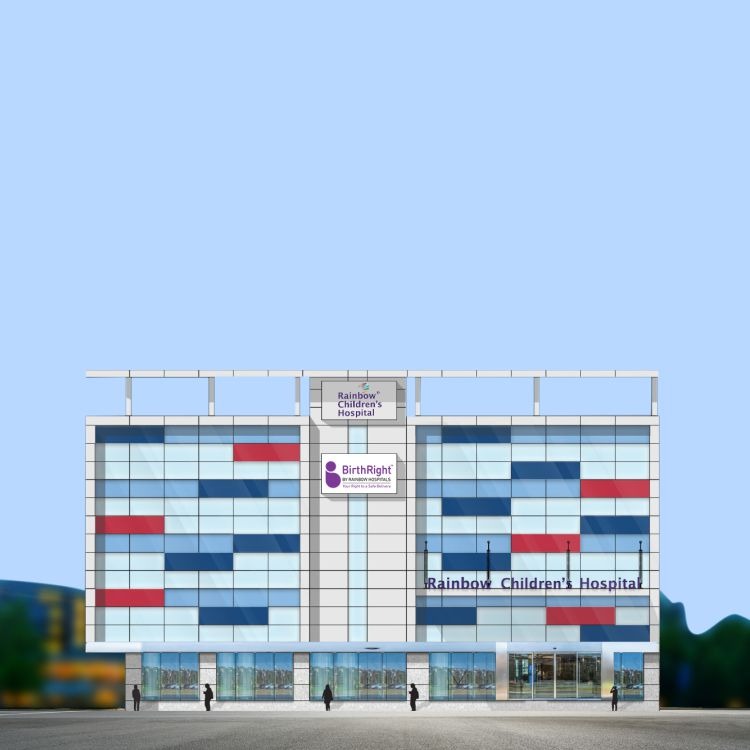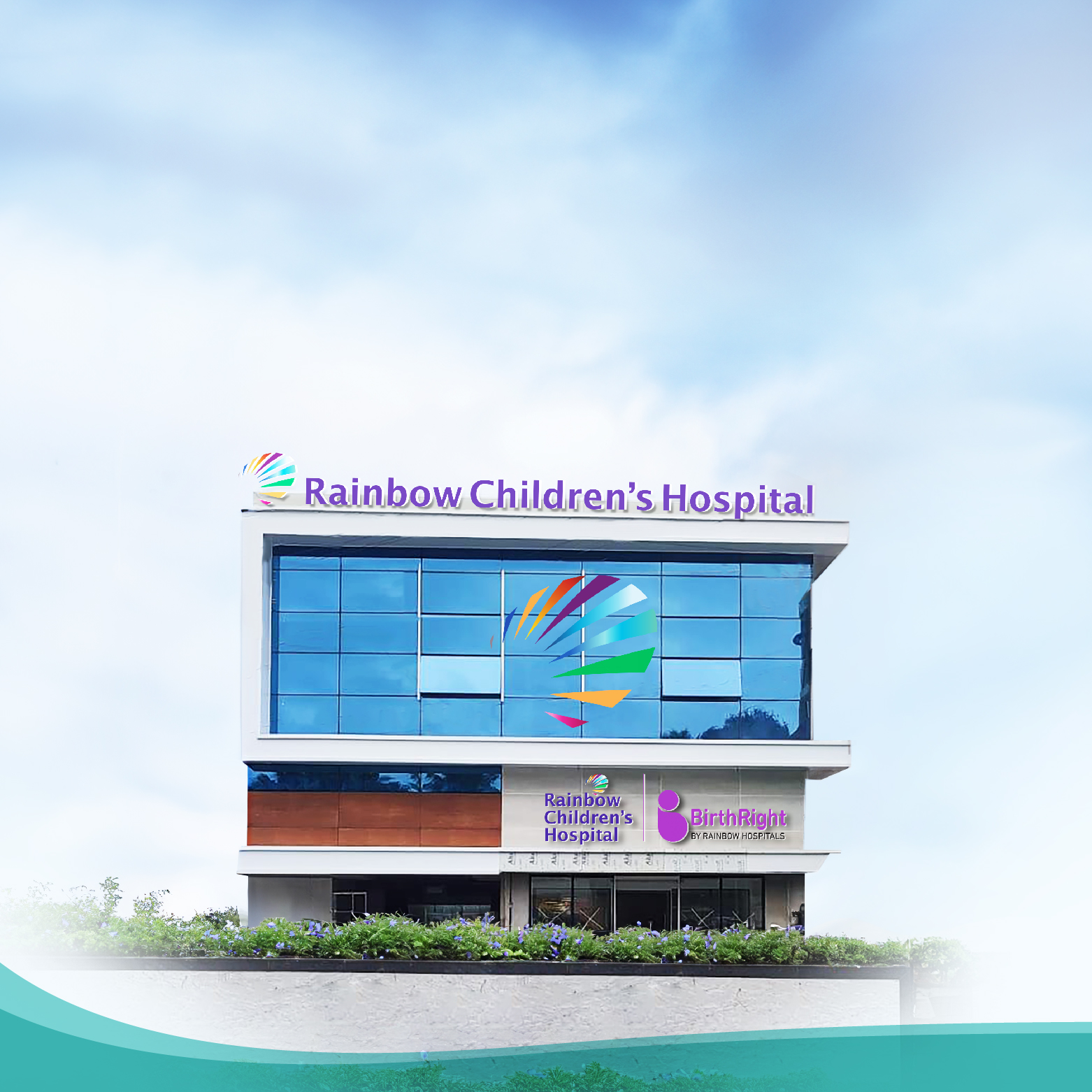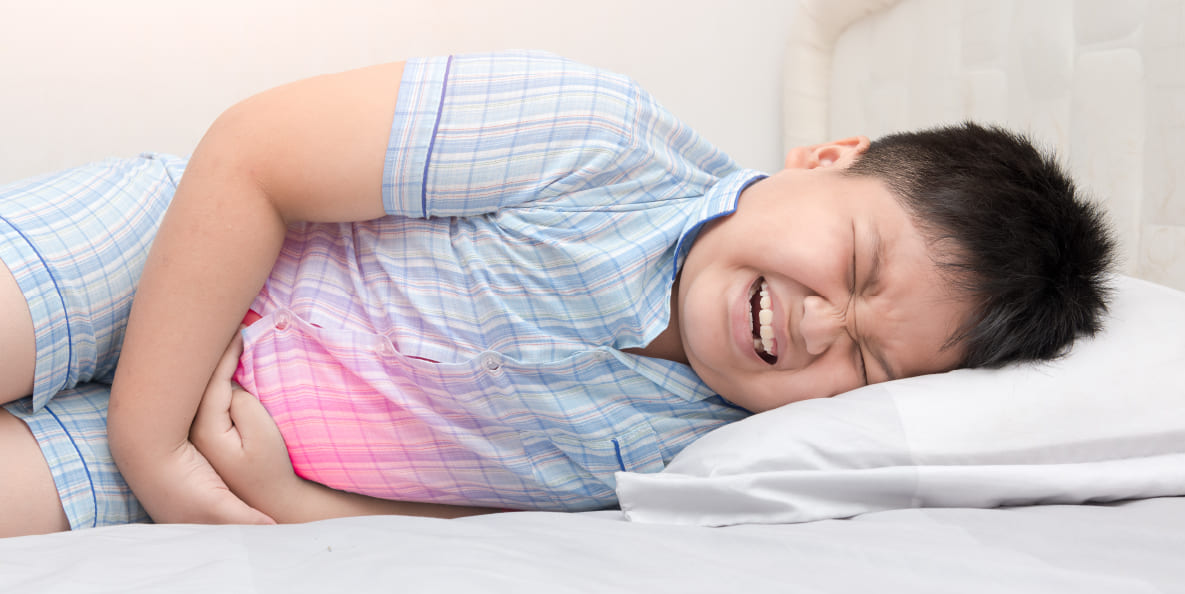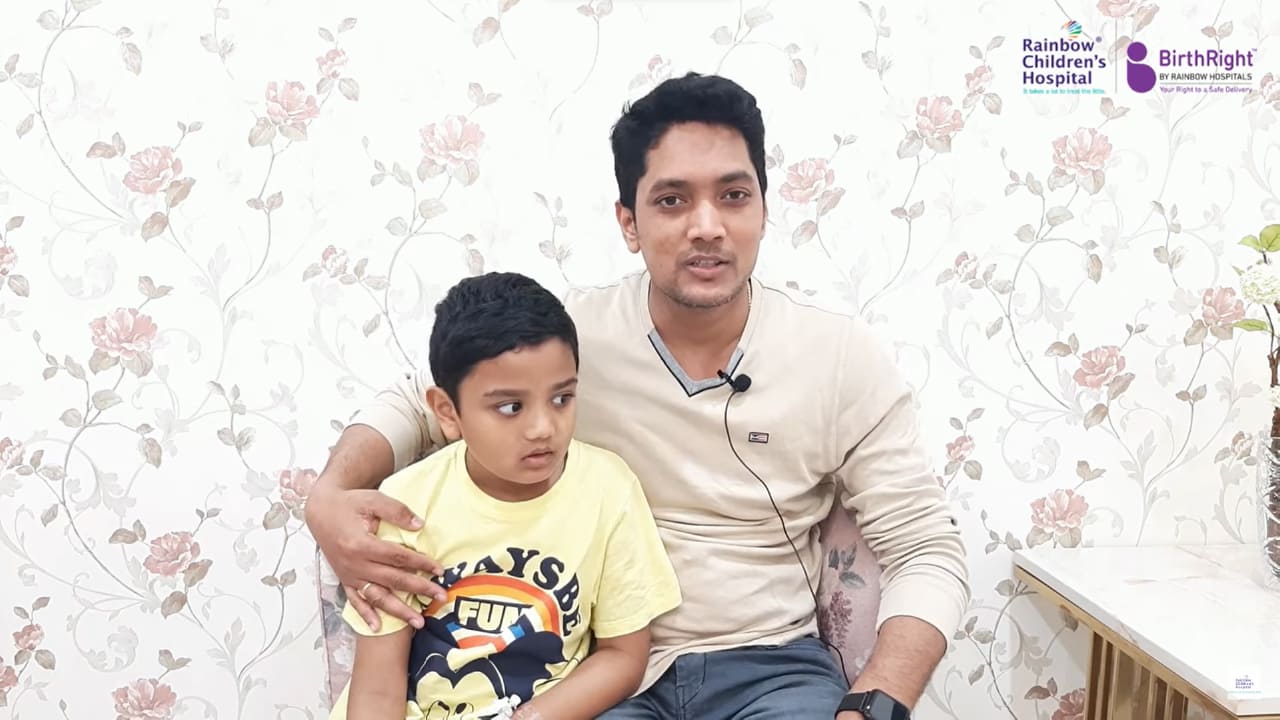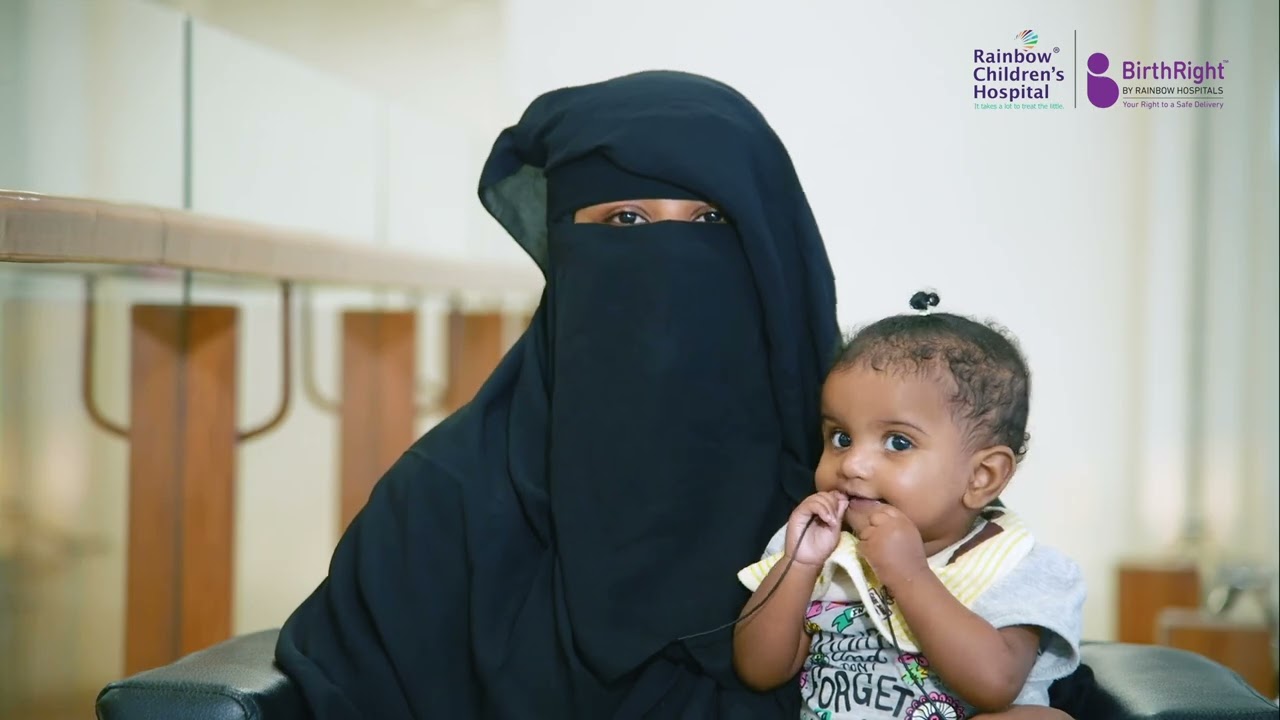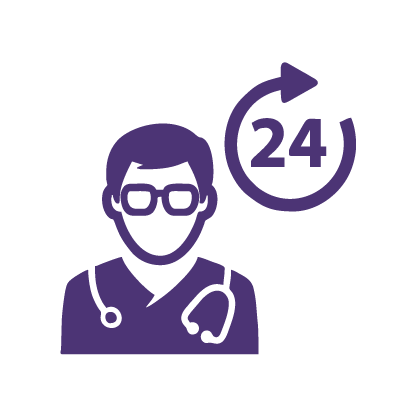Seamless support from diagnosis to post treatment care
Pediatric Allergy
Pediatric Allergy
Rainbow Children's Hospital provides an extensive range of treatment options through our Pediatric Allergy service. Our dedicated team specializes in diagnosing and tailoring treatments to manage and help your child recover from any allergy condition.
At Rainbow Children's Hospital, our experienced allergy experts have a proven track record in identifying common allergies, such as those related to food, animals, pollen, medications, perfumes, and household chemicals. Our state-of-the-art technology supports our experts in making accurate and well-founded diagnoses.
We offer treatment for various pediatric allergy conditions, including:
Asthma
Eczema (atopic dermatitis)
Hay fever (allergic rhinitis)
Hives (welts, urticaria)
Sinusitis
Reactions to insect stings, medications, or foods (anaphylaxis)
Immune disorders
Severe, unusual infections
Recurring abscesses and thrush
Frequent pneumonia, diarrhea, and sinusitis
Your child's health and well-being are our top priority, and we're here to provide comprehensive care for their allergy-related needs.
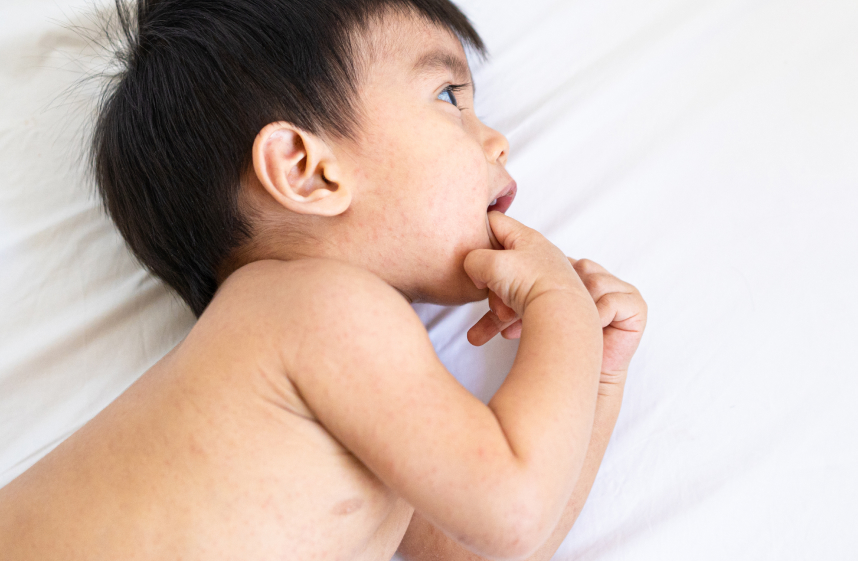
Find a Doctor
Expertise you can trust, Meet our esteemed doctors who bring exceptional knowledge, compassion, and innovation to provide top-notch care for your health and well-being.
Our Hospitals and ClinicsOur Hospitals and Clinics
Rainbow Children's Hospital stands as a testament to the hospital's continual pursuit of excellence and innovation, providing specialized care for women and children.
Request a Call back
Tap to Fill FormRequest a Call back
Blogs
Discover our most recent health articles provided by our reliable experts.
What Are People Saying About Us
Embark on a journey of inspiration and hope with our patient success stories, complemented by informative videos from our dedicated doctors.
Upset stomach
Difficulty breathing (asthma)
Hives or skin rashes (eczema or atopic dermatitis)
Sneezing
Runny nose
Itchy eyes
Coughing
Indoors - mold, dust mites, animal fur or hair
Outdoors - plant pollen, tree pollen, insect stings or bites
Foods - eggs, milk, milk products, peanuts
Irritants - perfume, cigarettes smoke, car exhaust
Allergic rhinitis or hay fever
This is the most common ailment in children caused by allergies. The symptoms for this include sneezing, itchy and runny nose, nasal congestion, postnasal drip, watery, itchy, and red eyes, and chronic ear problems. As opposed to its name, hay doesn’t trigger allergic rhinitis and doesn’t lead to fever.
Nasal congestion
Another common ailment caused by allergies is chronic nasal congestion. In some severe cases, the nose is so congested that the child has to use their mouth for breathing. This can lead to your child not getting a good night’s sleep. They will stay tired the whole day. If mouth-breathing and congestion aren’t treated, they can affect bones of the face and teeth growth. You can avoid these problems by treating the allergies early.
Ear infections
Allergies can often lead to ear inflammation that accumulates fluid. This results in decreased hearing and ear infections. If your child’s hearing is impaired while he/she is learning to talk, it can lead to poor speech. Apart from earache, allergies can lead to ear-popping, itching, and fullness.
A pediatric allergy specialist near you will help you know more about allergies in children and the treatment for it.
Children are mostly allergic to milk and peanuts. Other common triggers are fish, eggs, shellfish (shrimp, crab, crayfish, and lobster), nuts (walnuts, pecans, and cashews), wheat, and soy. In some cases, children can outgrow allergies to eggs, soy, milk, and wheat. However, allergies triggered by fish, tree nuts, and peanuts are severe and can last a lifetime.
If your child has a food allergy, you must know about anaphylaxis. It is a life-threatening allergic reaction in which there is trouble in breathing, a sudden drop in blood pressure that can cause the body to go into shock. For this reason, Epinephrine or adrenaline is prescribed to children with food allergies that are provided with an auto-injector.
Your child’s school must be informed about any allergies that your child might have. If your child has a severe allergy or asthma, you can give your action plan to the school administrative office or the nurse. Also, discuss medications, in case of an emergency. Apart from this, here is what you need to take care of:
Dust irritation - Children with allergic issues should be allowed to sit away from the blackboard. This will protect them from any irritation caused by the chalk dust.
Asthma and physical activities - Sports and physical education are a major part of the school day. Having asthma won’t eliminate these physical activities. With the doctor’s advice, children with allergic diseases and asthma will be able to participate in any physical activity. Make sure that your child is taking asthma medications regularly. For controlling symptoms, medication can be administered using an inhaler.
School pets - Furry animals can be a problem for children with allergies. Allergy or asthma symptoms can be triggered near a class pet leading to rashes, coughing, sneezing, runny nose, or difficulty breathing.
Blood test - This test is used for measuring the level of IgE antibodies to allergens in the child. RAST or radioallergosorbent test is a common blood test.
Skin test - This test is used to measure the level of IgE antibodies for specific allergens in the child. Dilated solutions of specific allergens are used for pricking the skin’s surface. However, the skin test reaction doesn’t always mean that your kid has an allergy. Skin tests are more specific than blood tests and can give results in 15 minutes.
Challenge test - In this supervised test, a small amount of allergen is either inhaled or taken by mouth.
Age and health of the child
Tolerance for specific procedures, therapies, and medications
The extent of the disease
Expectations
Opinion or reference of parents or guardians
Quick Links
- Pediatric Allergy Specialist in Hyderabad
- Pediatric Allergy Specialist in Bengaluru
- Pediatric Allergy Specialist in Delhi
- Pediatric Allergy Specialist in Kondapur, Hyderabad
- Pediatric Allergy Specialist in Hydernagar, Hyderabad
- Pediatric Allergy Specialist in Secunderabad, Hyderabad
- Pediatric Allergy Specialist in LB Nagar, Hyderabad
- Pediatric Allergy Specialist in Marathahalli, Bengaluru
- Pediatric Allergy Specialist in Bannerghatta, Bengaluru
- Best Pediatric Allergists In Hebbal
- Best Pediatric Allergists In Guindy
- Best Pediatric Allergists In Banjarahills
- Top Pediatric Allergists in India
- Pediatric Allergy Specialist In India
- Best Pediatric Allergy Specialist In India
- Top Pediatric Allergy Specialist In India
- Famous Pediatric Allergy Specialist In India
- Top Pediatric Allergy Specialist In India Near Me
- Famous Pediatric Allergy Specialist In India Near Me
- Best Pediatric Allergy Specialist In India Near Me
- Pediatric Allergy Specialist In India Near Me
- Pediatric Allergists near me in Lb Nagar
- Pediatric Allergists near me in Kondapur
- Pediatric Allergists near me in Banjarahills
- Pediatric Allergists near me in Hyder Nagar
- Top Pediatric Allergists In Kondapur
- Pediatric Allergists near me in Secunderabad
- Anaphylaxis in Children, Hyderabad
- Food Allergy in Children, Hyderabad
- Pollen Allergy in Children, Hyderabad
- Latex Allergy in Children, Hyderabad
- Peanut Allergy in Children, Hyderabad
- Allergy Immunotherapy in Children, Hyderabad
- Urticaria (Hives) in Children, Hyderabad
- Mold Allergy in Children, Hyderabad
- Allergies in Children, Hyderabad in Children, Hyderabad
- Allergy in Children, Hyderabad in Children, Hyderabad
- Animal Allergy in Children, Hyderabad
- Tree Nut Allergies in Children, Hyderabad
- Antibiotic Allergy Testing in Children, Hyderabad
- Chronic Granulomatous Disease (CGD) in Children, Hyderabad
- Allergic Colitis in Children, Hyderabad
- Anaphylaxis in Children, Bengaluru
- Food Allergy in Children, Bengaluru
- Pollen Allergy in Children, Bengaluru
- Latex Allergy in Children, Bengaluru
- Peanut Allergy in Children, Bengaluru
- Allergy Immunotherapy in Children, Bengaluru
- Urticaria (Hives) in Children, Bengaluru
- Mold Allergy in Children, Bengaluru
- Allergies in Children, Bengaluru in Children, Bengaluru
- Allergy in Children, Bengaluru in Children, Bengaluru
- Animal Allergy in Children, Bengaluru
- Tree Nut Allergies in Children, Bengaluru
- Antibiotic Allergy Testing in Children, Bengaluru
- Chronic Granulomatous Disease (CGD) in Children, Bengaluru
- Allergic Colitis in Children, Bengaluru
- Anaphylaxis in Children, Delhi
- Food Allergy in Children, Delhi
- Pollen Allergy in Children, Delhi
- Latex Allergy in Children, Delhi
- Peanut Allergy in Children, Delhi
- Allergy Immunotherapy in Children, Delhi
- Urticaria (Hives) in Children, Delhi
- Mold Allergy in Children, Delhi
- Allergies in Children, Delhi in Children, Delhi
- Allergy in Children, Delhi in Children, Delhi
- Animal Allergy in Children, Delhi
- Tree Nut Allergies in Children, Delhi
- Antibiotic Allergy Testing in Children, Delhi
- Chronic Granulomatous Disease (CGD) in Children, Delhi
- Allergic Colitis in Children, Delhi
- Anaphylaxis in Children, Chennai
- Food Allergy in Children, Chennai
- Pollen Allergy in Children, Chennai
- Latex Allergy in Children, Chennai
- Peanut Allergy in Children, Chennai
- Allergy Immunotherapy in Children, Chennai
- Urticaria (Hives) in Children, Chennai
- Mold Allergy in Children, Chennai
- Allergies in Children, Chennai in Children, Chennai
- Allergy in Children, Chennai in Children, Chennai
- Animal Allergy in Children, Chennai
- Tree Nut Allergies in Children, Chennai
- Antibiotic Allergy Testing in Children, Chennai
- Chronic Granulomatous Disease (CGD) in Children, Chennai
- Allergic Colitis in Children, Chennai
- Anaphylaxis in Children, Vijayawada
- Food Allergy in Children, Vijayawada
- Pollen Allergy in Children, Vijayawada
- Latex Allergy in Children, Vijayawada
- Peanut Allergy in Children, Vijayawada
- Allergy Immunotherapy in Children, Vijayawada
- Urticaria (Hives) in Children, Vijayawada
- Mold Allergy in Children, Vijayawada
- Allergies in Children, Vijayawada in Children, Vijayawada
- Allergy in Children, Vijayawada in Children, Vijayawada
- Animal Allergy in Children, Vijayawada
- Tree Nut Allergies in Children, Vijayawada
- Antibiotic Allergy Testing in Children, Vijayawada
- Chronic Granulomatous Disease (CGD) in Children, Vijayawada
- Allergic Colitis in Children, Vijayawada
- anaphylaxis-in-children-vizag
- food-allergy-in-children-vizag
- pollen-allergy-in-children-vizag
- latex-allergy-in-children-vizag
- peanut-allergy-in-children-vizag
- allergy-immunotherapy-in-children-vizag
- urticaria-hives-in-children-vizag
- mold-allergy-in-children-vizag
- allergies-in-children-vizag-in-children-vizag


